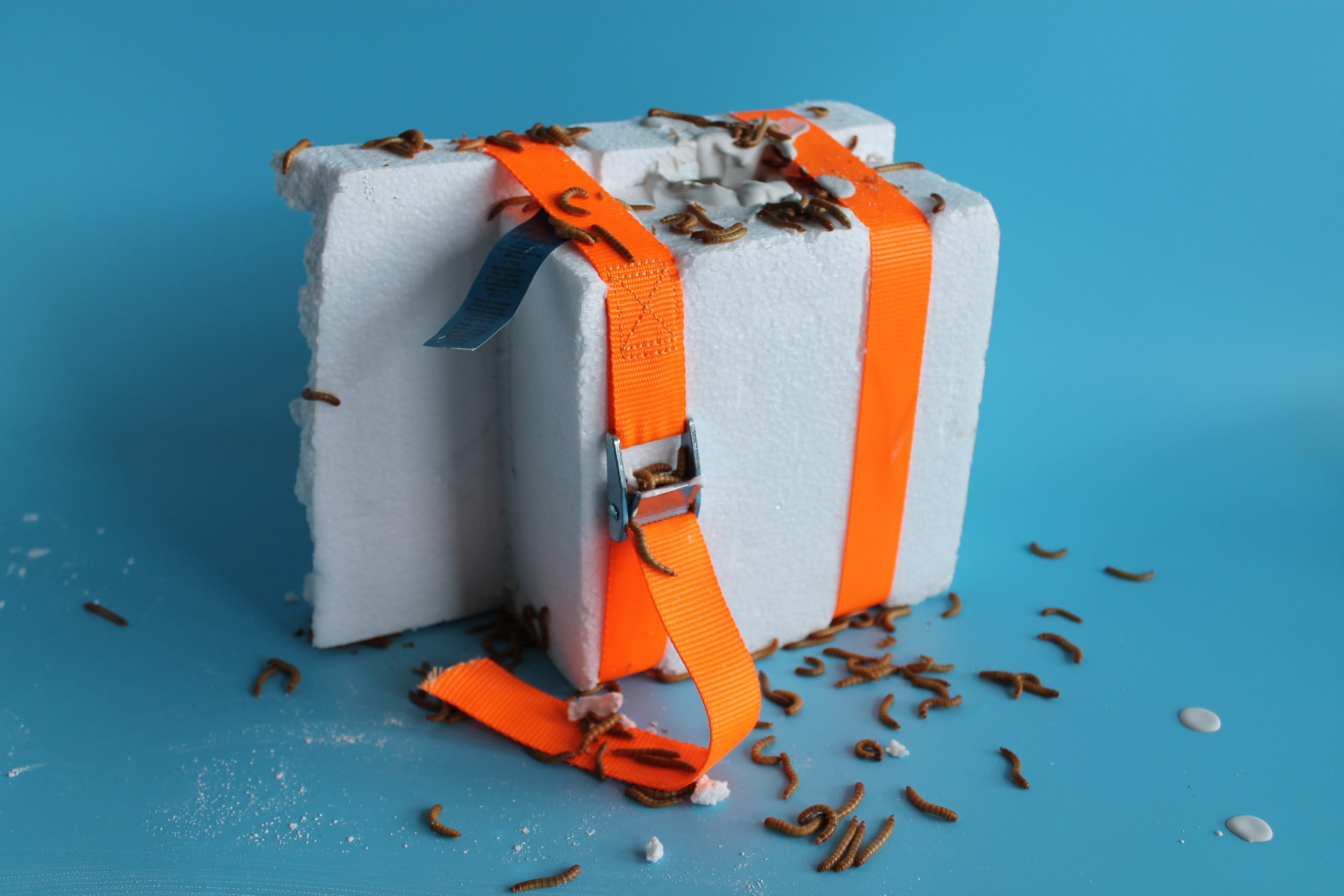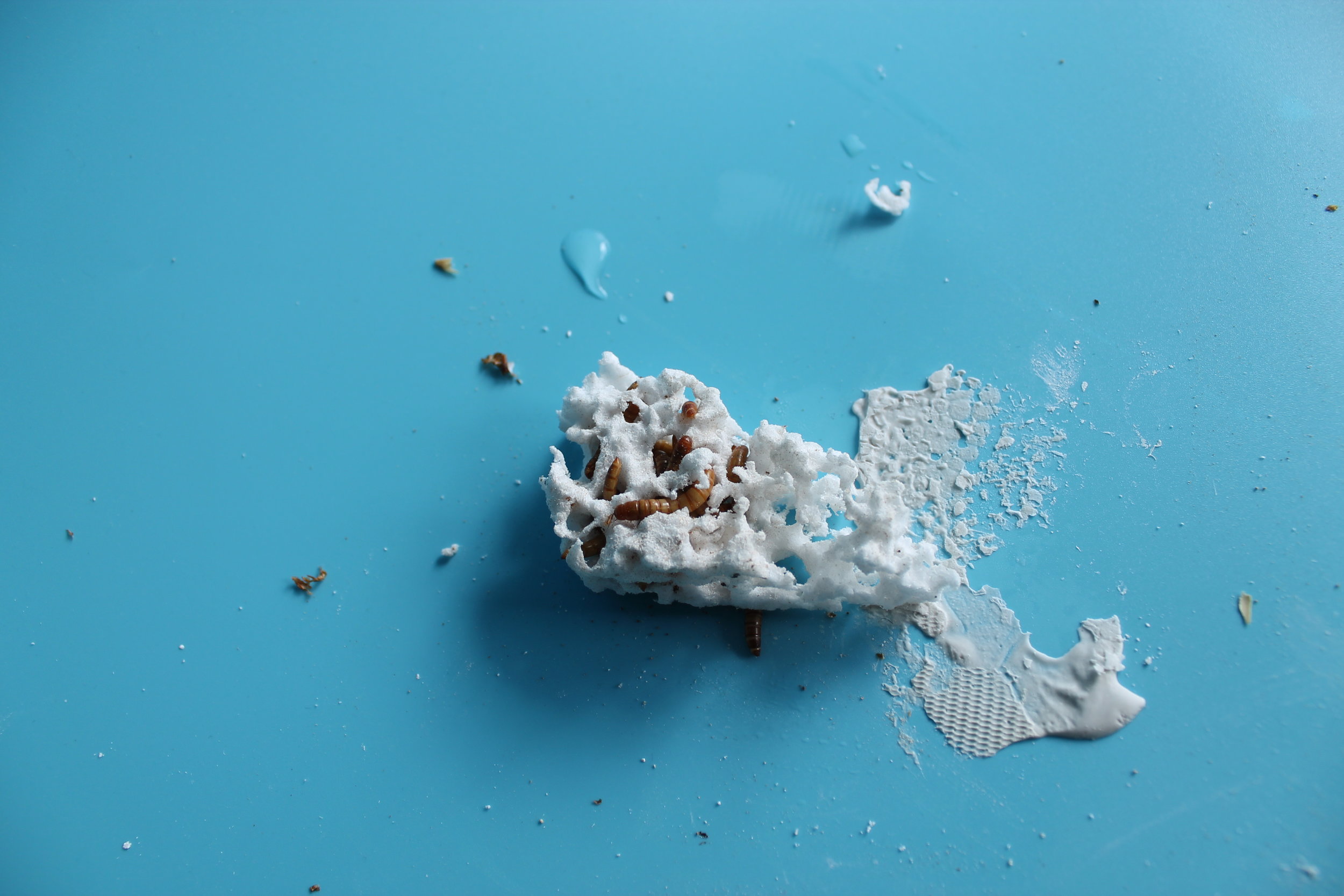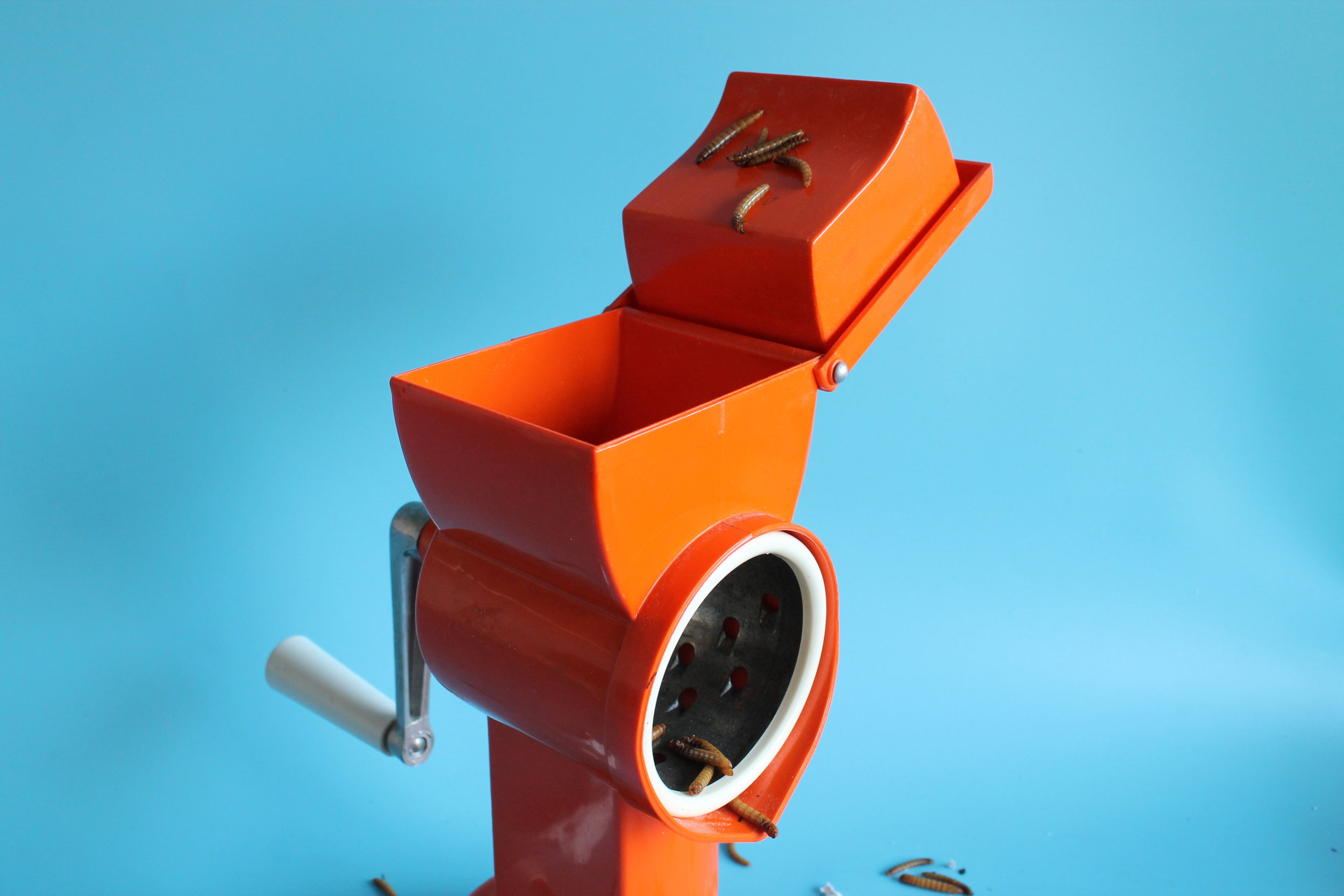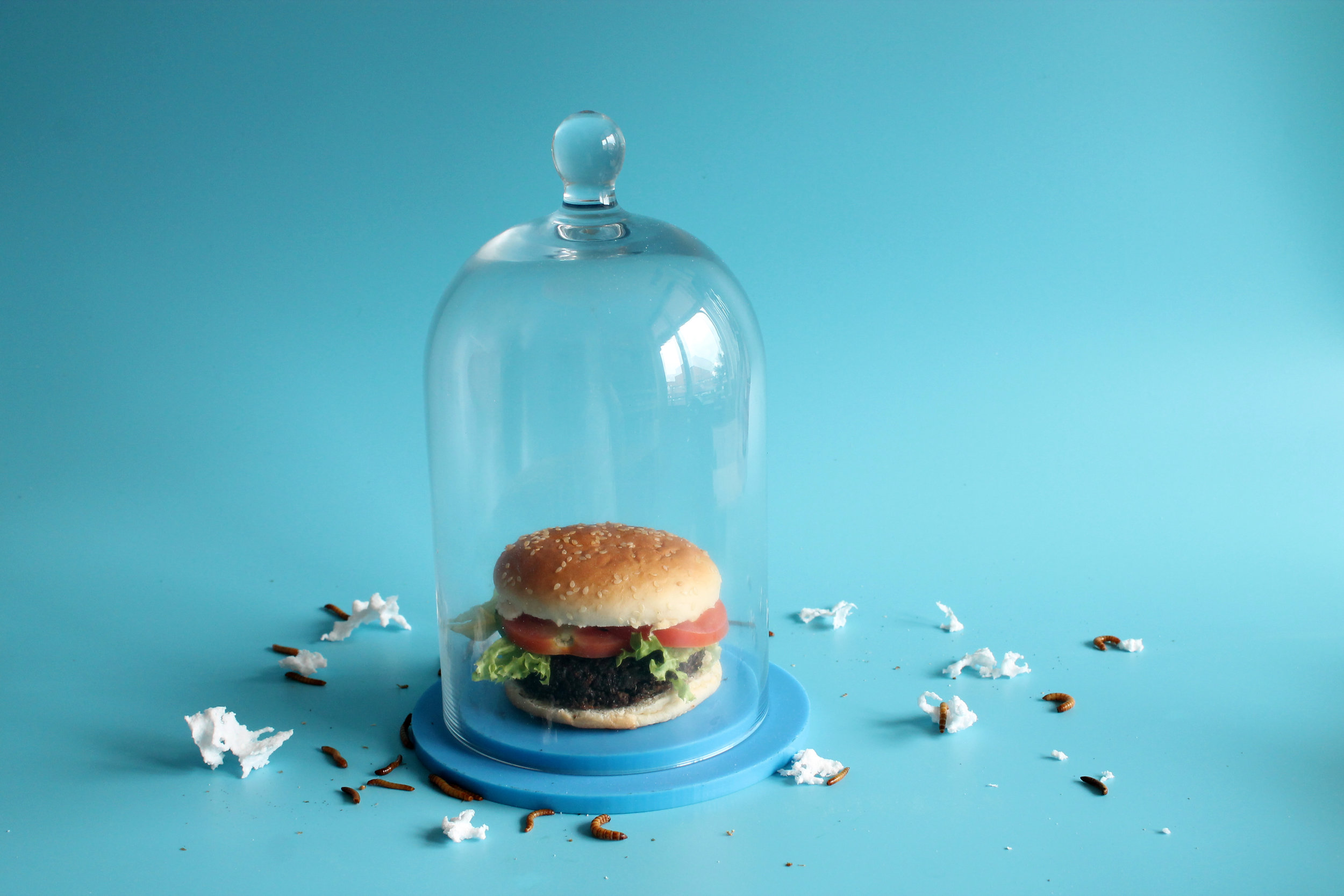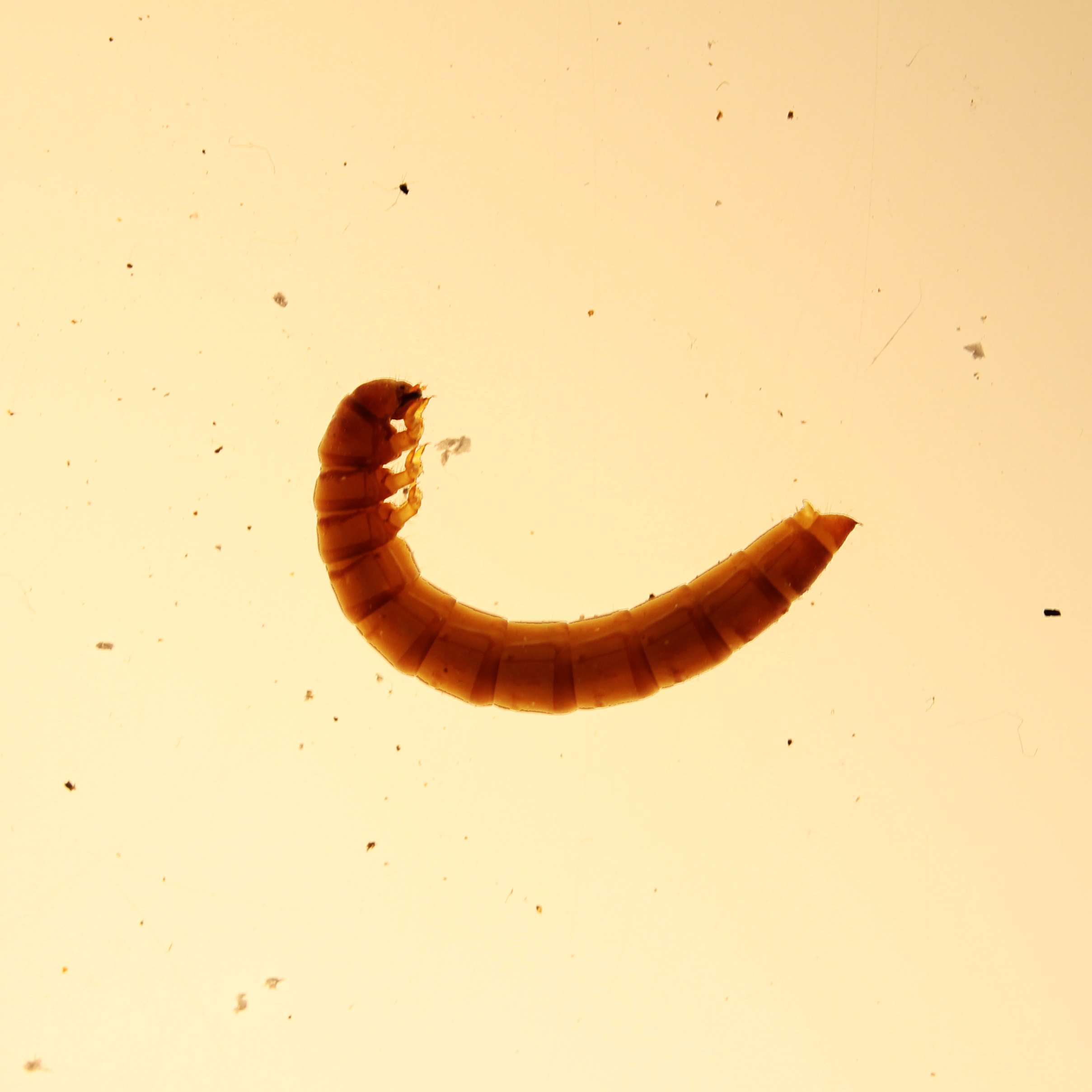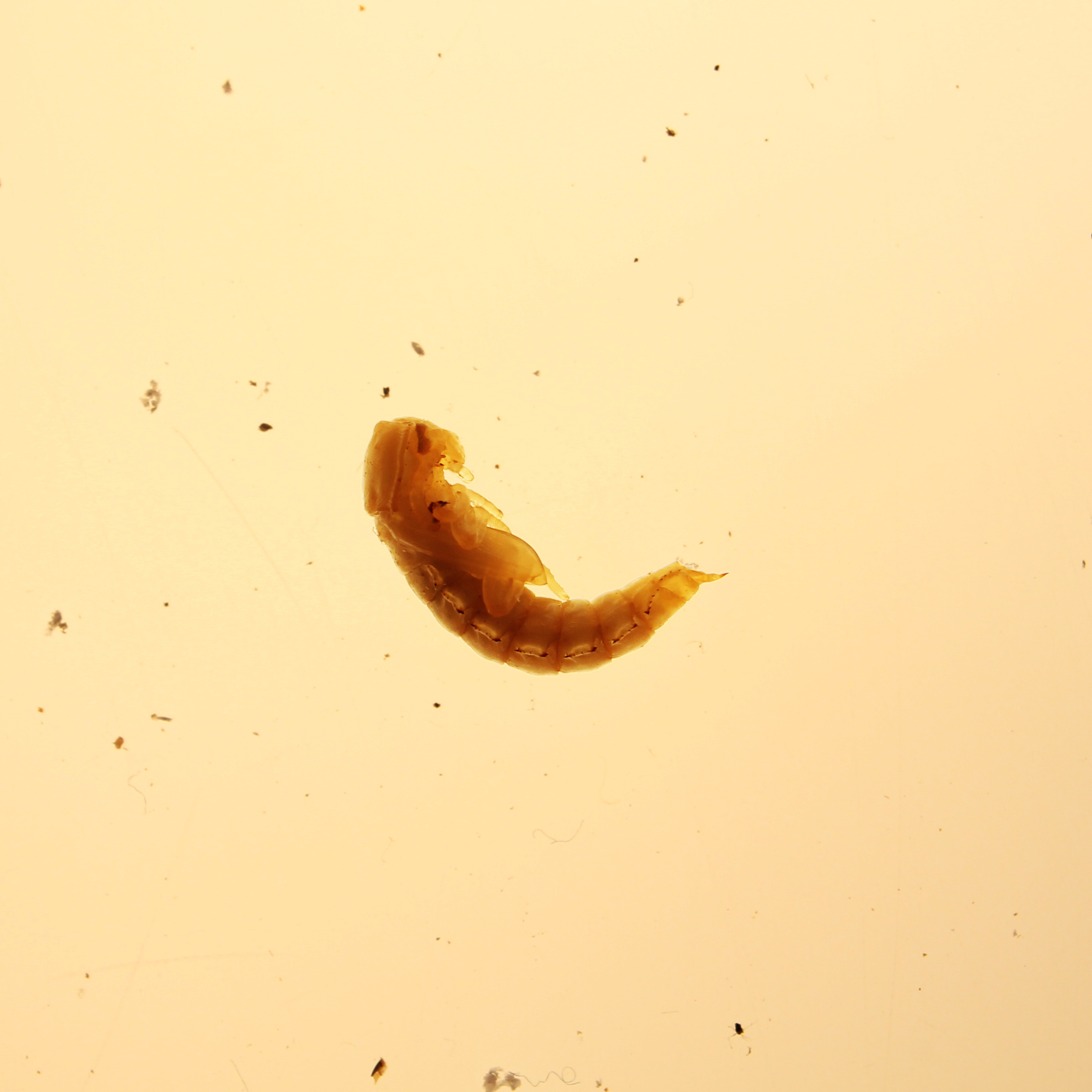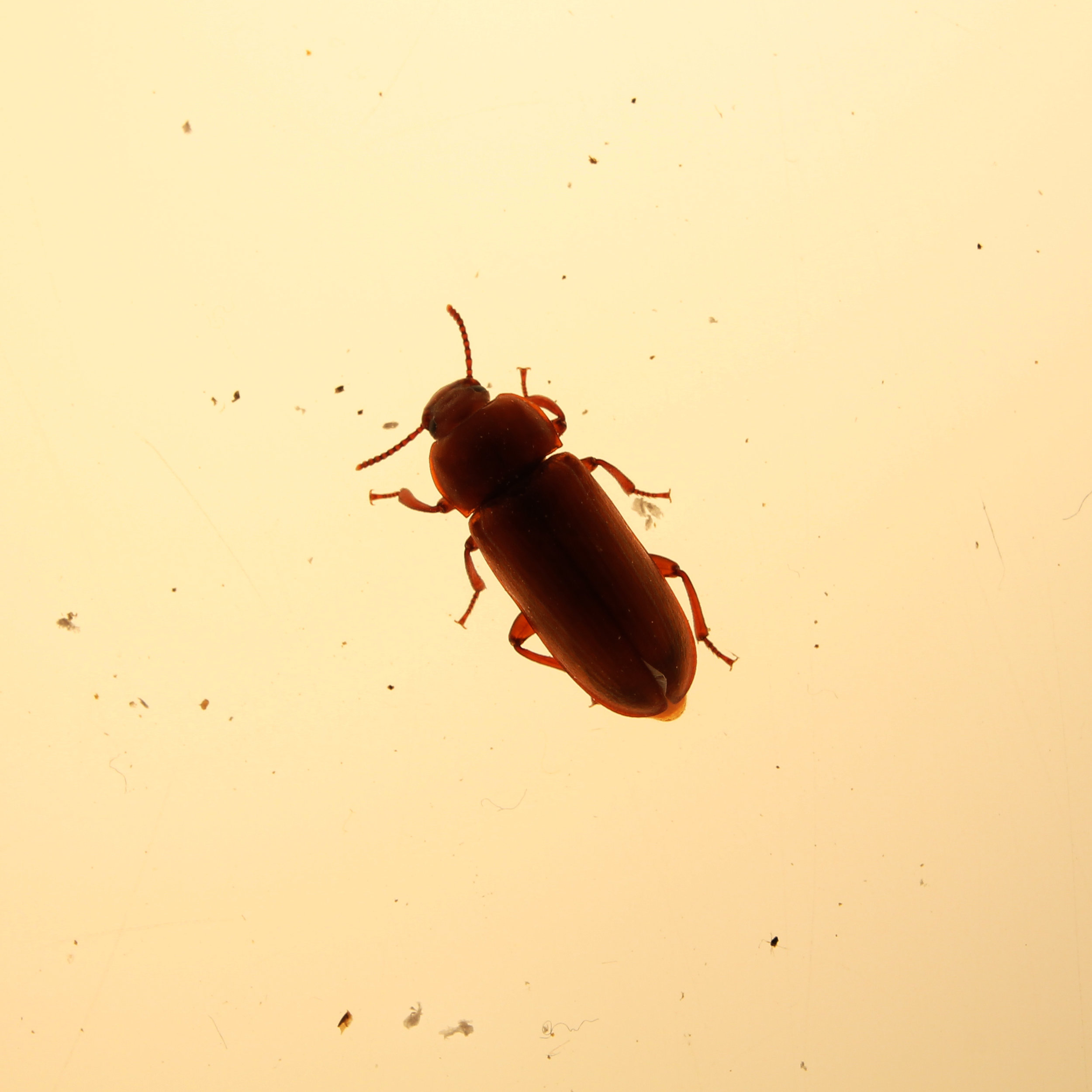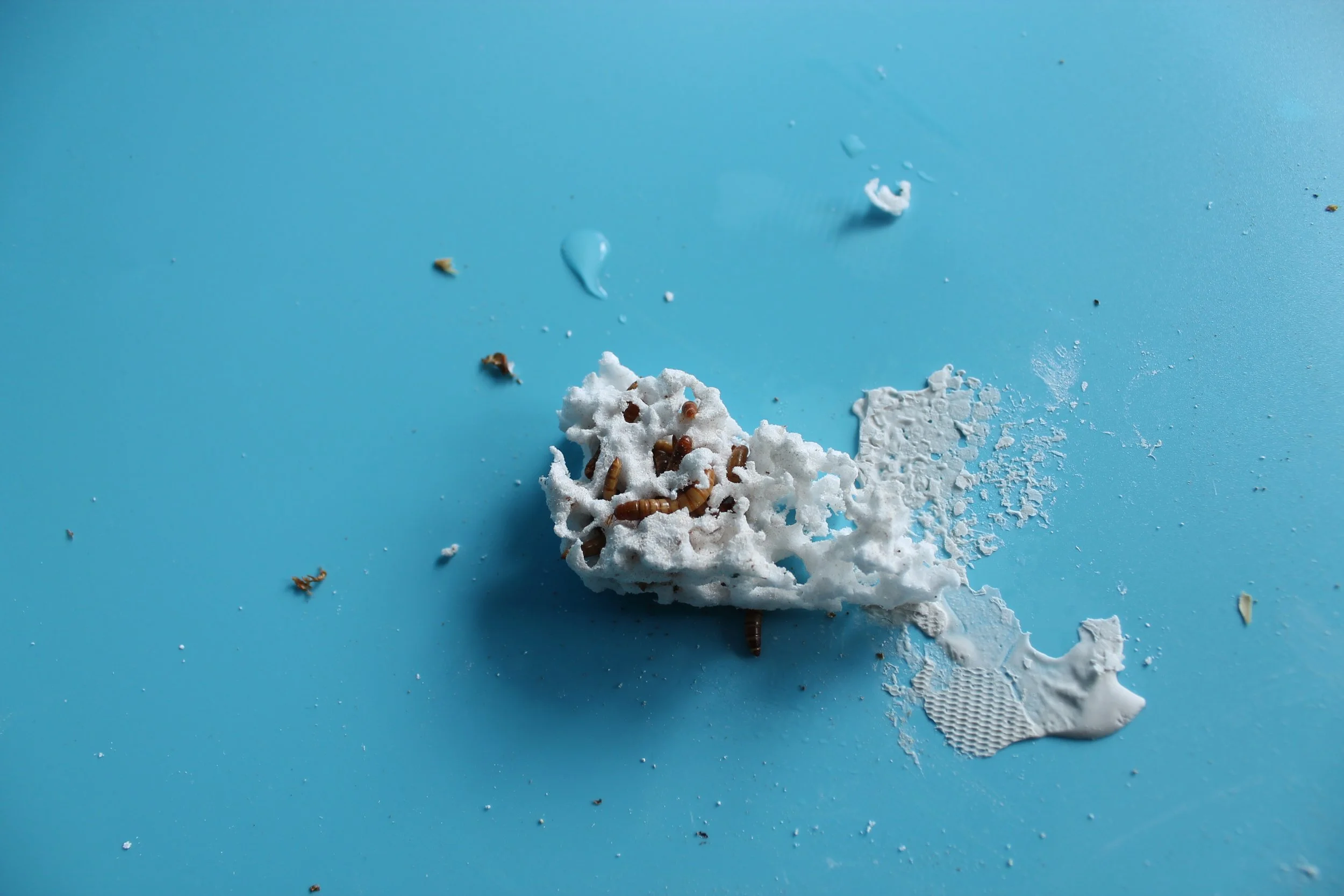
BoeteBurger, a Speculative Future about Waste
Would you eat plastic to save the environment?
We generate waste simply by existing, just as any organism does. On our journey towards a more sustainable future, it's crucial to consider not only how we can avoid waste but also what we do with our existing waste. I envision a future where we partner with nature, building upon the waste we've created to form a cycle where nothing is truly wasted.
Type: research, food design, speculative future
Products: installation, BoeteBurger, workshop, styrofoam sculpture
Partners: House of Design, Laif and Nuver
The Boeteburger Project harnesses Styrofoam-eating mealworms to transform waste into food. These mealworms consume Styrofoam packaging collected from waste streams, converting it into energy for growth. Once the mealworms are fully saturated, they're harvested, processed, and transformed into a unique culinary experience—a delicious hamburger.
Eat your own waste with the Boeteburger!
A small batch of mealworms feasting on polystyrene for a period of 2 weeks.
The Boeteburger Project blurs the line between reality and speculation. Mealworms can indeed break down real Styrofoam (polystyrene plastic), converting it into harmless organic matter through enzymatic processes. They even break down microplastics. But the question remains: can humans safely consume these mealworms? This project challenges us to look towards the future and asks: what lengths are we willing to go to save our environment?
Mealworms are actually caterpillars, not worms and only the first shape they take in their journey throughout life.

